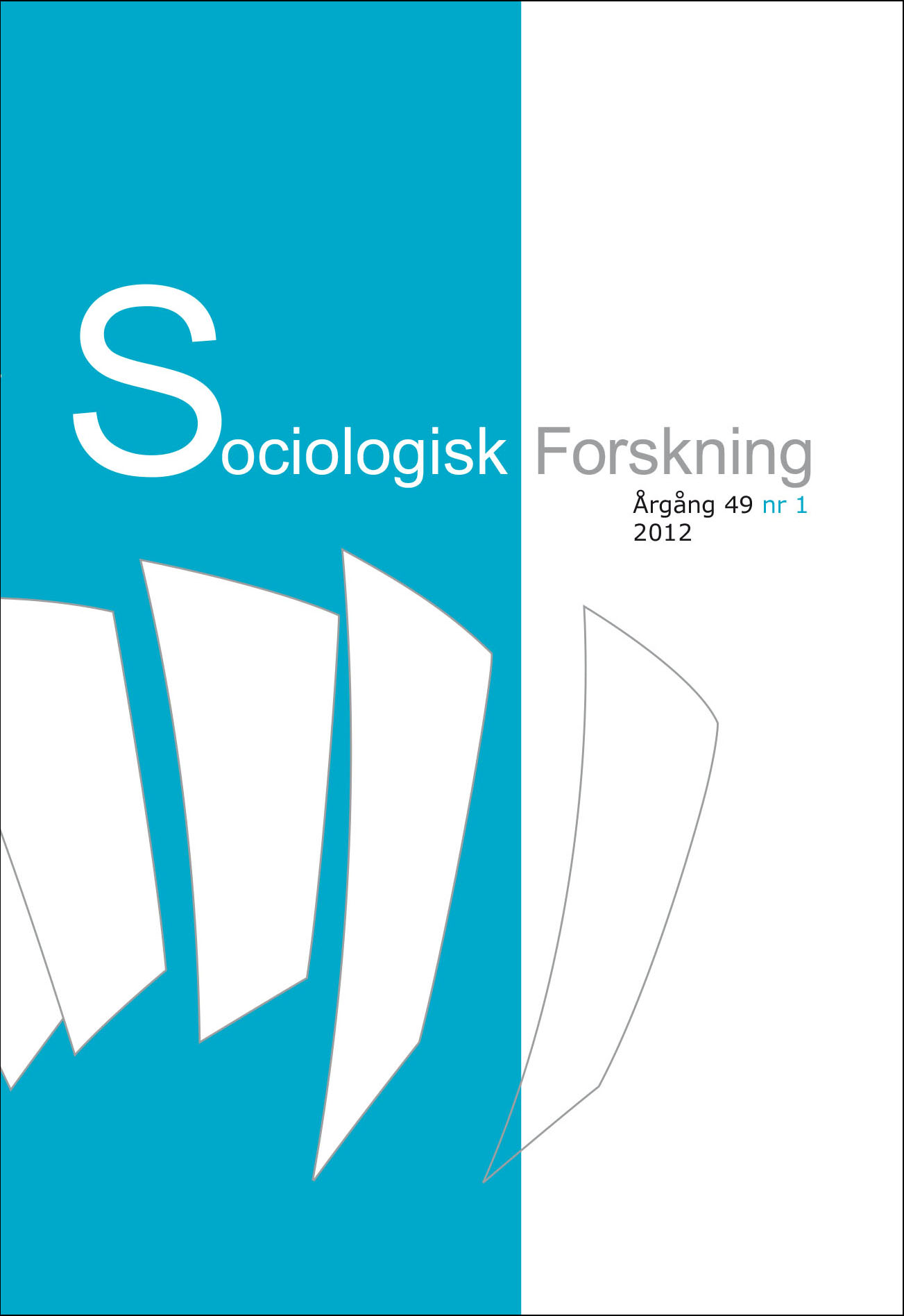Riskfyllt vatten
Hur individen skapar sig en förståelse av oväntad parasitförekomst i dricksvattnet
DOI:
https://doi.org/10.37062/sf.49.18389Keywords:
sensemaking of risk, social relations, Schütz, Cryptosporidium, quick response studyAbstract
Risky water How the individual makes sense of unexpected parasites in the drinking water
This quick response study was carried out with the aim to study how individuals made sense of the outbreak of the parasite Cryptosporidium in the drinking water in Ostersund. In total 24 interviews were made with people in Ostersund. The result shows that the interviewees related to social as well as spatial dimensions when they made sense of this risky situation, which can be understood in relation to the concept of sensemaking of risk. Six groups among the interviewees emerged in the analysis, illustrating how different aspects of the risk where focused in the process of sensemaking. Further, the study shows that the process of sensemaking was built upon direct as well as indirect social relations, where the interviewees made sense of the risk by relating to people who were close to them as well as to people to whom they had no personal relation. These indirect social relations were defined as: elderly, children and people in other countries, which also points at the fact that the interviewees made sense of the risk in a global context. Finally, the results suggest that social relations could be further explored in future studies in sensemaking of risk.
Downloads
Published
How to Cite
Issue
Section
License
All content in Sociologisk Forskning is published with immediate open access, under the Creative Commons license CC BY-NC-ND 4.0.
All content may be read, downloaded, shared and printed for non-commercial purposes, free and without fees. Contents may not be altered. When content is reused, author, source and a link to the copyright licence must be provided. The author retains copyright to their content. No publication fees are charged.





